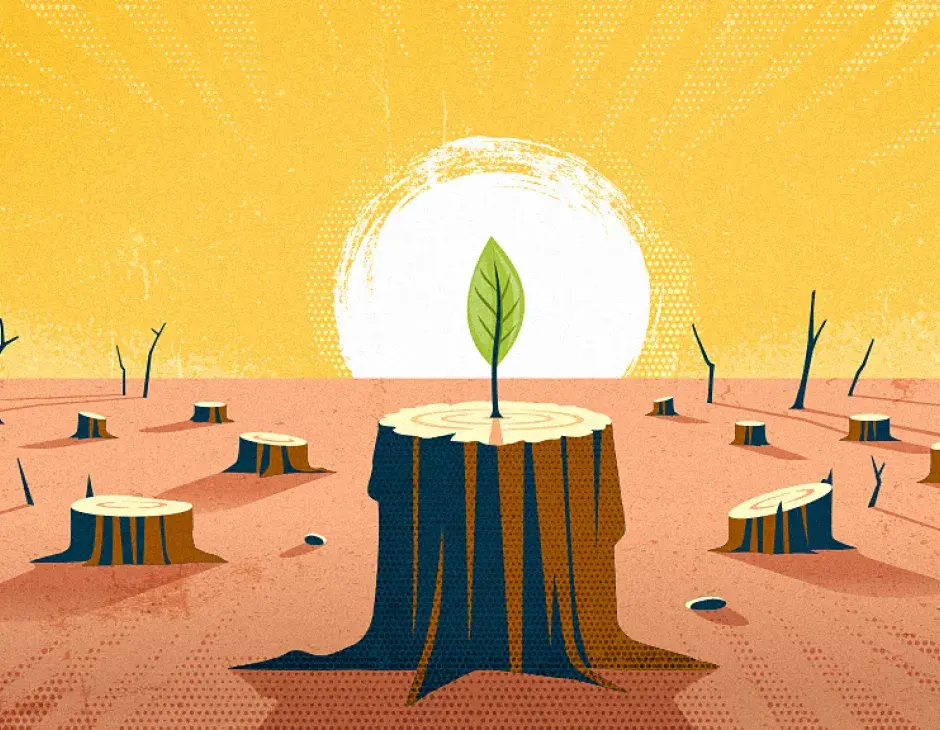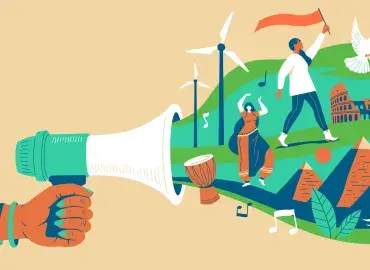The International Dialogue Centre (KAICIID), the Coalition of Faith-Based Organizations, the United Nations Environment Programme (UNEP) and the United Nations Office on Drugs and Crime (UNODC) will host a webinar on June 4 involving leading experts in discussions about how faith-based organizations can better align themselves with attempts to deal with the challenges posed by climate change.
Renowned economist Jeffrey Sachs, together with Dr Harald Egerer, Head of the UNEP Vienna Office, Jorge Eduardo Rios, Chief of the Global Programme for Combating Wildlife and Forest Crime at UNODC, Kiran Bali, Global Chairperson at United Religions Initiative and Prof. Roberto Manuel Carlés, President of the Society of Social Defense, will join the webinar, titled Faith for Earth: Climate Change and Environmental Justice.
The United Nations has acknowledged that faith-based organizations are key players in eradicating poverty, providing inclusive access to quality education, improving health care and achieving sustainable development. Increasingly, they are also becoming recognised as important partners in the field of environmental protection.
As global leaders call for urgent action on climate change, international organizations are turning to faith communities in a coordinated response to one of the world’s most pressing humanitarian and development issues. This topic will be explored during the upcoming webinar and through new online resources to be launched throughout the year.
Religious leaders’ unique role
Because 80% of the world’s population identifies with a religious belief, faith leaders are believed to be critical in the fight against climate change through their capacity to model sustainable behaviours in their respective communities, raise awareness and speak on behalf of the most vulnerable.
According to the UNEP, “faith-based organizations have unparalleled reach and mobilising power because of the sheer number of their adherents in every corner of the world—even in remote areas where the fight against environmental degradation will be won or lost.”
KAICIID, which is committed to United Nations Agenda 2030 and the Sustainable Development Goals (SDGs), recognizes that religious leaders are uniquely positioned to tackle issues such as deforestation, water scarcity and food security, as many of these issues directly threaten their local communities. Many faith-based organizations are already providing aid and relief services in the wake of climate related disasters and are more than willing to take on a more proactive and preventative role.
Resources and partnerships towards the SDGs
In order to support the efforts of religious leaders to advance the global goals and promote climate justice, the Centre is expanding its tools and resources through its Dialogue Knowledge Hub. In addition to the upcoming webinar, the Centre plans to launch a series of new online courses in partnership with United Nations agencies (such as UNAOC, UNEP and UPEACE), which will equip religious leaders with the needed tools and methodologies to effectively implement the SDGs in their countries and local communities.
KAICIID is also in the early planning stages for a separate certificate online course specifically targeted at the role of religion in environmental protection, which will be developed in collaboration with the UNEP.
The Centre’s online resources are intended to bolster the outcomes of the upcoming 2020 G20 Interfaith Forum, which will focus on “Safeguarding the planet by fostering collective efforts to protect our global commons” as one of its key themes.
Held in partnership by KAICIID, UNAOC, the G20 Interfaith Forum Association and Saudi Arabia’s National Dialogue Committee, the G20 Interfaith Forum provides a platform for policymakers and religious leaders to collaborate on global agendas ahead of the annual G20 Leaders’ Summit.
This year’s Forum will hold regional and international discussions around a wide array of development issues including access to clean water, commitment of faith networks to disaster risk reduction, practical partnerships to address climate change and an emphasis on rainforest protection.
If you would like to join the webinar or learn more about KAICIID’s online tools and resources, please click here.
The importance of women’s participation in global peace initiatives will be the focus of the latest webinar in KAICIID’s wide-…


